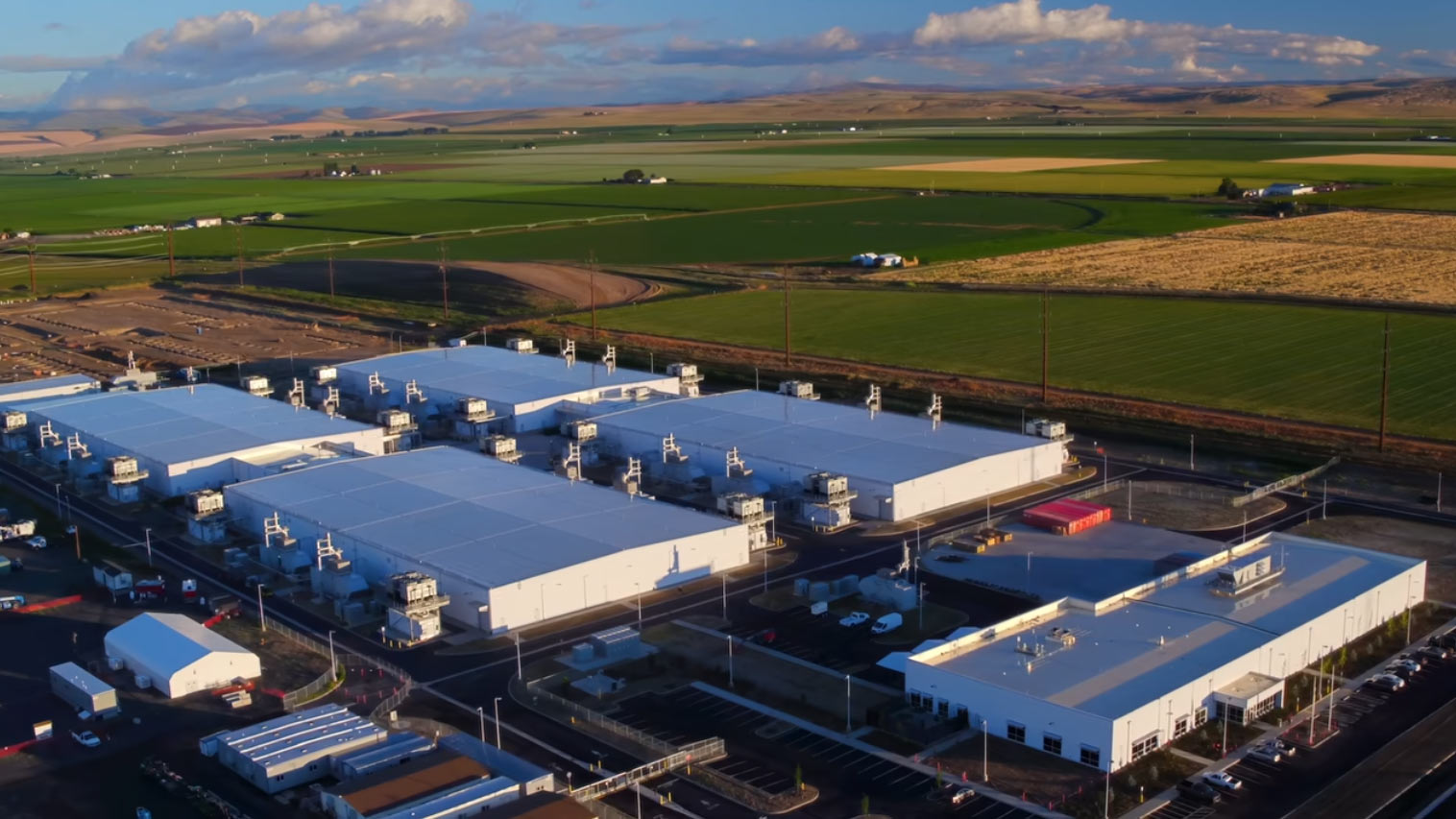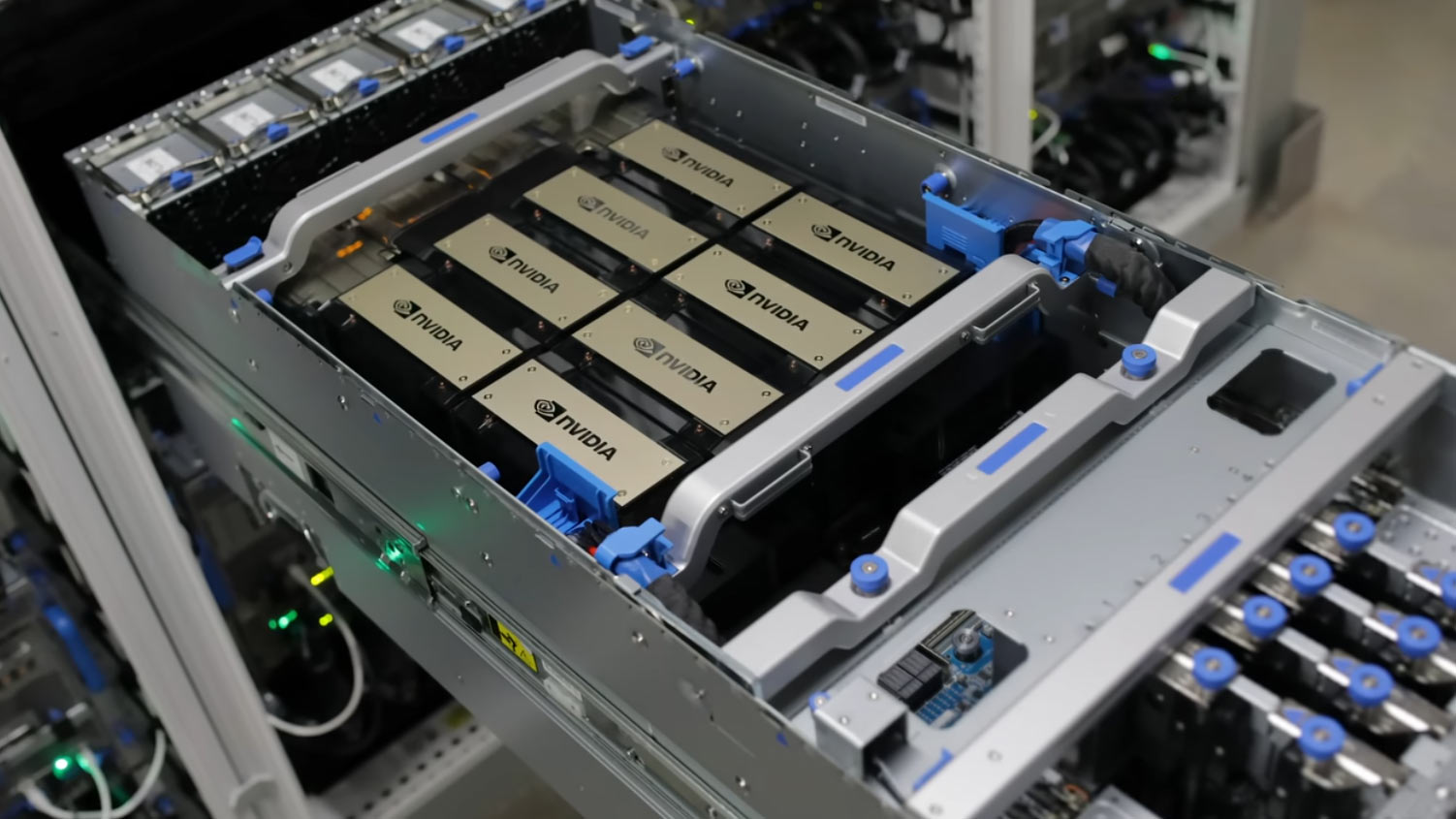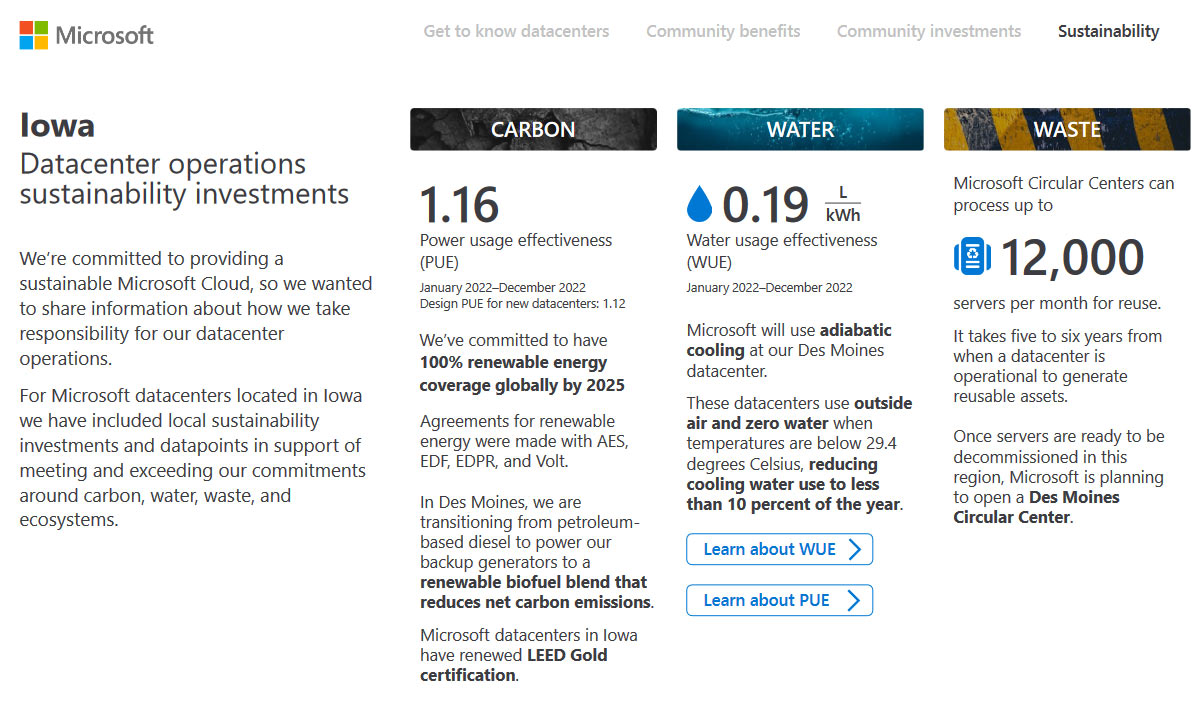Just Five ChatGPT Queries Can Use 16oz of Water, Say Researchers
Researchers have been probing water consumption figures associated with Microsoft's data center in Iowa.

Researchers from the University of California reckon the growth in popularity of AI might not be without a significant environmental impact. The Associated Press (AP) reported on a preliminary study from the University, which indicates as few as five ChatGPT queries can result in gulping up 500 milliliters of water (roughly a 16-ounce bottle) at Microsoft's Iowa data center. The study also includes indirect water use from other sources associated with the data center, like the power plant that feeds its energy.
Previously, we have looked with concern at the electricity consumption of hyperscalers like Google, Microsoft, and AWS. We also saw cryptocurrency mining operations push computing energy consumption figures to new highs a few years ago. Water is arguably a more precious resource, but California researchers have had to put unexpected efforts into digging up water consumption figures, with AP characterizing server companies as "secretive" regarding specifics.
The goal of the UC researchers was to uncover the environmental impact of AI processing, spurred by the success of products like ChatGPT. This is based on the knowledge that Microsoft's Iowa data centers are a major driver behind a great deal of the recent AI processing expansion.


One of Microsoft's most powerful computers known to be dedicated to OpenAI is situated in Iowa. The system, which was first unveiled in 2020, is powered by more than 285,000 AMD InfiniBand CPU cores and 10,000 GPUs. It is dedicated to GPT-4, OpenAI's fourth-generation model.
Figures show that from 2021-22, Microsoft's water consumption in Iowa rose 34% to nearly 1.7 billion gallons. The UC researchers peg this increase as due to the rise of AI. Calculations indicate that the data center uses half a liter of water (16 fluid oz) per 5 to 50 ChatGPT queries. Variables affecting water consumption (5 to 50 is a wide range) include server location and weather (some server cooling methods consume water). Interestingly, there is no mention of any correlation between query complexity and water or electricity consumption.
However, the above estimates include "indirect water usage," not tallied by the companies involved — like water usage from the power plants that feed electricity to the data centers.
AP got a statement from Microsoft, which sought to highlight its progress in efficiency, the use of renewables, and other efforts made in the name of sustainability. Separately, OpenAI admitted to AP that "training large models can be energy and water-intensive" but said it was striving for greater training efficiency.
Get Tom's Hardware's best news and in-depth reviews, straight to your inbox.
Things could be worse, according to the researchers. They say that the data center's location in Iowa means that for much of the year, the weather is cool enough that air venting from the building is sufficient for server cooling. The facility only starts to draw water from the mains when the weather hits 29.3 degrees Celsius (about 85 degrees Fahrenheit) or above,
Figures for July 2022 show the water draw is still considerable during the summer period, with Microsoft's Iowa data centers pumping in about 11.5 million gallons of water, according to the West Des Moines Water Works (about 6% of all water consumed in the district). A letter seen by AP indicates the water company and city government are concerned about Microsoft's peak summer usage. Without improved technology to ensure their peak water usage will be significantly lower, it won't green-light further data centers.
What about Google and its chat-based Bard AI tool and other AI projects? The researchers say the search giant used 30% more water in the same period (2021-22) across all its US data centers. This rise is again largely attributed by the UC researchers to the explosion in the demand for AI processing. Interestingly, Google's water consumption in Oregon has been under scrutiny by regulators in recent years and didn't rise much, but its data centers near Las Vegas doubled their water consumption, and Google's Iowa facilities were the thirstiest of all.

Mark Tyson is a news editor at Tom's Hardware. He enjoys covering the full breadth of PC tech; from business and semiconductor design to products approaching the edge of reason.
-
vehekos This is so ridiculously absurd that has to be fake.Reply
Not even a million queries should consume that much water. -
ctchewy Haven't Microsoft and Google every heard of recirculating water. You know, use water to cool the servers and then use a heat exchanger to cool the water, then send it back to cool the servers? This seems like a rather easy fix to the water consumption problem. Not only that, but you use the waste heat from the heat exchanger to power a turbine and produce electricity for the data center too.Reply -
Giroro Reply
Servers often use evaporative cooling to keep the air cool.ctchewy said:Haven't Microsoft and Google every heard of recirculating water. You know, use water to cool the servers and then use a heat exchanger to cool the water, then send it back to cool the servers? This seems like a rather easy fix to the water consumption problem. Not only that, but you use the waste heat from the heat exchanger to power a turbine and produce electricity for the data center too.
And in order to make those swamp coolers more effective, they like to build giant server farms in the desert where the air is hotter and water is scarce. -
Giroro I would use ChatGPT less if Google would fix their increasingly useless and apparently easily exploited search algorithms.Reply
If it's a choice between manually digging through 1,000 AI-generated, sponsored, and ad heavy results or just generating the exact answer I need.... there's really no competition. -
james9701 What do they mean when they say water is used? Does that mean it runs through a heat exchanger and is dumped into a river? Evaporation pond? Onto the ground? What's the source of the water? How plentiful is water at that source? Evaporation means it precipitates as rain again so it's not really wasted. Deposited on the ground means it recharges an aquifer. Dumped in a river means it's either taken up again further downstream or deposited into a salt water body which can be beneficial or harmful environmentally. The best situation would probably be to use a closed loop system where the water recirculation constantly and the heat is dumped or used elsewhere. That would be more expensive though, probably.Reply
Using water isn't inherently a bad thing, environmentally speaking. Things like how you source it, how you use/ dispose of it, and how much energy is used matter. -
Alvar "Miles" Udell ReplyThe estimate includes indirect water usage that the companies don’t measure — such as to cool power plants that supply the data centers with electricity.
And there goes all credibility for the report right there. -
nitrium Reply
^^^ This. Evaporative Cooling is far more cost effective than radiators and giant fans... if you have the water for it. Building these server farms along major rivers (just like nuclear power plants) reduces your cooling costs to near zero.Giroro said:Servers often use evaporative cooling to keep the air cool.
And in order to make those swamp coolers more effective, they like to build giant server farms in the desert where the air is hotter and water is scarce. -
Geef What a waste!Reply
A well-made Fremen Stillsuit is so good at recycling its wearer's water, that the wearer would lose only a thimbleful of water a day on a desert world like Arrakis. 😷 -
DSzymborski ReplyAdmin said:Data centers are causing environmental stress not just due to power demands, but water usage too, with AI services like ChatGPT ramping up consumption.
Just Five ChatGPT Queries Can Use 16oz of Water, Say Researchers : Read more
Because as well all know that, like smoke, evaporated water flies into the sky and becomes stars.
NIMcStAwJ7YView: https://www.youtube.com/watch?v=NIMcStAwJ7Y

